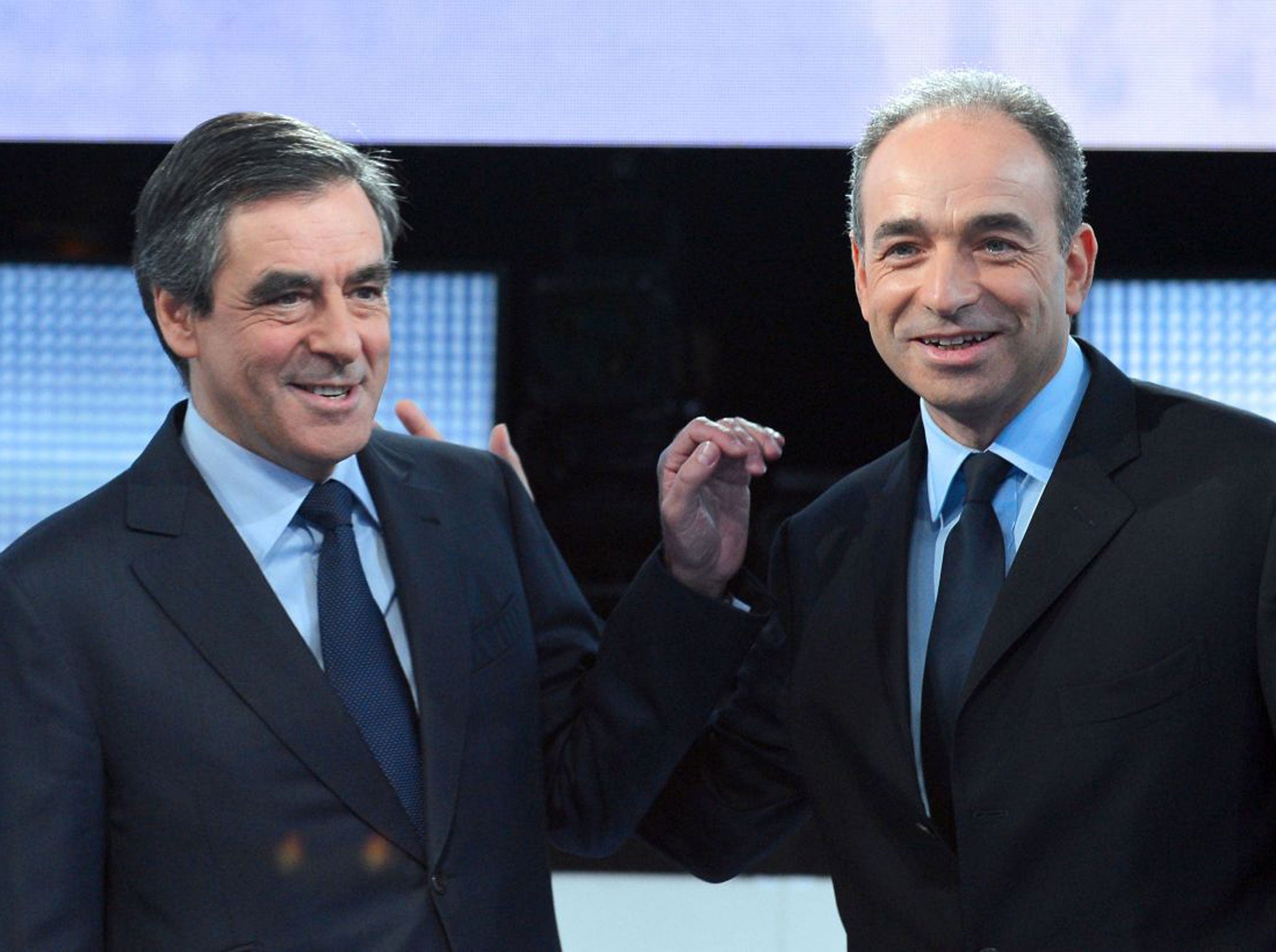Sarko without the talent or Mr Wait-And-See? French right decides who will succeed Nicolas Sarkozy
If Copé wins, it is possible the UMP will split and moderate figures will drift to a new centre party

Members of France's biggest political party will decide on Sunday who should succeed Nicolas Sarkozy as the dominant figure on the French centre-right – and possibly become the next President of France.
Their decision could break the mould of French party politics. It could also put the country on course to have its first British-born First Lady since the Middle Ages.
Up to 250,000 members of the Union pour un Mouvement Populaire (UMP) will choose a party president from a field of two: the cautious, charming, ex-Prime Minister François Fillon, 58, and the abrasive, populist party secretary-general, Jean-François Copé, 48.
After a nasty campaign, reminiscent of a US primary without TV advertising, opinion polls suggest that centre-right voters overwhelmingly favour Mr Fillon. But the choice will be made by paid-up members of the UMP – officially 250,000 but probably fewer – whose political tastes are more tribal than those of the centre-right electorate as a whole. Mr Copé has fought an aggressive, Sarkozy-like, Islam-baiting campaign, intended to prove he can recapture right-wing voters from the far-right National Front in 2017. If he wins, it is possible the UMP will split and senior, moderate figures will drift to a new party of the centre.
A former UMP minister, now retired from politics, Roselyne Bachelot is reported to have told friends: "It has been a calamitous campaign … I've rarely seen so much hatred in politics. The campaign carries the seeds of the destruction of the UMP."
The two men detest one another. Mr Fillon describes Mr Copé privately as "Sarko without the talent": an inexperienced, shallow, clan politician, incapable of uniting the nation. Mr Copé says that Mr Fillon is a grandee without fixed political views, who believes he has a right to govern but is not prepared to break sweat to talk to the party grassroots. Opponents call Mr Fillon "Monsieur Au-Cas-Ou" – or Mister Wait-and-See.
Mr Fillon, whose wife, Penelope, comes from Abergavenny, is right-wing on economic themes but inclusive on social issues. He says the 2017 presidential election will not be won by a lurch to the right but by appealing also to voters of the left and centre.
Mr Copé says he wants a French right "without complexes". In practice this means refusing alliances with the National Front but stealing some of their divisive themes and language. At one stage, Mr Copé spoke of a rising tide of "anti-white" racism in France's immigrant communities. To widespread media derision, he cited the case of a white child whose pain au chocolat was confiscated by schoolmates of Arab origin during the Ramadan fast.
For weeks, Mr Fillon has ignored personal attacks by Mr Copé and his supporters. In the past few days, he started to fight back. The former Prime Minister said Mr Copé's "origins" should make him an "implacable enemy" of far-right ideas. Mr Copé's people accused Mr Fillon of racism because he had alluded to his opponent's Jewishness. Mr Fillon said this was "odious and terribly stupid".
Although it claims to be the largest political party, the UMP is fragile, and is €50m (£40m) in debt. It was created by the former President Jacques Chirac 10 years ago by merging his own Gaullist party (populist, instinctively Eurosceptic, statist on economic issues) with much of the pro-European, UDF federation (a mixture of centrists and economic liberals).
* Ministers have angrily dismissed this week's Economist front cover, which labelled France a "time-bomb at the heart of Europe". The cover showed seven baguettes, bundled together like sticks of dynamite, with a lighted fuse. The magazine said that, despite reforms announced in the past week, markets could turn against France and destroy the euro. The Industry Minister Arnaud Montebourg said The Economist was "the Charlie Hebdo of the City" – referring to a French satirical magazine which has twice published inflammatory cartoons of the Prophet Mohamed. The Prime Minister Jean-Marc Ayrault, said: "You are talking about a newspaper which is resorting to excess to sell paper."
Join our commenting forum
Join thought-provoking conversations, follow other Independent readers and see their replies
Comments
Bookmark popover
Removed from bookmarks